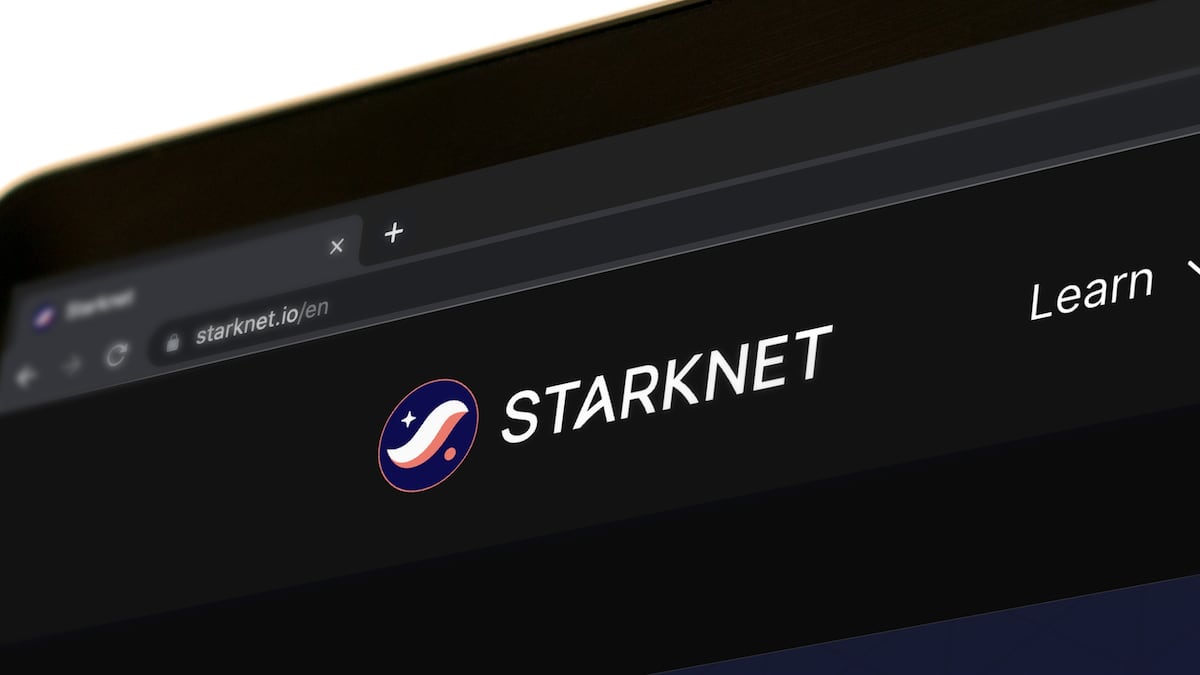- Starkware announced the details of its highly anticipated token airdrop earlier this week, which will power the layer 2 scaling solution.
- Criticism emerged immediately around the eligibility criteria and a very brief vesting schedule for insiders.
- The CEO is unphased by the criticism, pointing to the airdrop's intent and additional provisions coming soon.
Starkware’s controversial airdrop this week has pushed CEO Eli Ben-Sasson into action to quell community discontent.
That’s because waves of users have protested the eligibility criteria around the airdrop and a rather brief vesting period for early investors.
In one instance, a user reported receiving 1,800 STRK tokens, worth $3,204 based on the pre-launch price by perps platform Aevo, for fixing a spelling error in the Starkware documentation.
Ben-Sasson told DL News in response to the eligibility reports that its automation strategy was very broad.
“I’m sure that when you do this automated process, even in a somewhat automated fashion, I can easily see how such errors could happen,” he said, speaking directly to the possibility of users being rewarded for spell-checking documentation.
More than 700 million tokens are to be airdropped to one million eligible wallet addresses. Users can claim their allocation on Tuesday.
Airdrops are a popular bootstrapping mechanism for onboarding new users to a crypto network. Tokens are usually doled out to early users of a protocol, with larger allocations going to those who racked up lots of interactions, for example.
Starkware is the company behind the buzzy layer 2 network built to scale Ethereum. The network currently hosts more than $54 million, per data from DeFi Llama.
A pseudonymous developer czbag claimed a whopping 10,000 tokens, worth $17,800, for developing a programme to sybil – or create multiple addresses that feign activity – the network and sharing it on GitHub.
“Insanely surprised. It was very nice to receive an airdrop for this development,” czbag told DL News about the allocation.
A cottage industry of so-called airdrop farmers has sprung up to game the often opaque eligibility requirements for an airdrop. Given how some airdrops have been life-changing financial events for lucky users, this has become a full-time job for many.
For the Starkware CEO, how the airdrop was executed is beside the point.
“Let’s look at the intention,” said Ben-Sasson. “The intention is to distribute to a new class [of people] that has never been invited in this way to join crypto.”
Insiders land big payout — again
The token’s vesting schedule has arguably drummed up the most controversy.
Technically, the token’s smart contract — the code that dictates a token’s total supply and how it functions — was deployed in November 2022.
The StarkWare Foundation holds 50.1% of the ten billion tokens, which are earmarked for airdrops, rebates, and research grants.
Other holders at that time, including early investors and core contributors, couldn’t move the tokens beyond staking them with the network. These two groups represent 17% and 33% of the token allocations, respectively.
This demographic, which holds up 13.1% of the total STRK supply, will be able to move those tokens as they please come April. This has sparked concerns that some 1.3 billion STRK tokens will be sold on the market.
As for the two-month vesting event, Ben-Sasson told DL News that this had been public information since July 2022.
He also added that there is another airdrop coming soon, as well as using the token in other rebates for network participants.
Overall, the co-founder seemed unfazed and chalked up the pushback as yet more learning material.
Or even a playbook for other projects.
“I wouldn’t be surprised if some of the things that are viewed as controversial right now regarding this particular provisions plan will, down the line, be considered best practice. This has happened to us before,” he told DL News.
Liam Kelly is DL News’ Berlin correspondent. Contact him at liam@dlnews.com.


